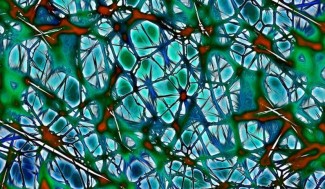Cyril Atkinson-Clément (Institut du Cerveau - ICM) and Yulia Worbe (Sorbonne Université/APHP) in the team “normal and abnormal motor control: movement disorders and experimental therapeutics” at paris brain institute, show that the control of motor impulsivity, the trait that characterizes the ability to inhibit a movement or action already started, is not correlated with tics in patients with tourette's gilles syndrome. these results, published in the journal cortex, shed new light on this complex pathology.
Abnormality of inhibitory control is considered to be a potential cognitive marker of tics in Tourette disorder (TD), attention deficit hyperactivity disorder (ADHD), and impulse control disorders. The results of the studies on inhibitory control in TD showed discrepant results. The aim of the present study was to assess reactive inhibitory control in adult TD patients with and without antipsychotic medication, and under emotional stimulation (visual images with positive, neutral and negative content).
We assessed 31 unmedicated and 19 medicated TD patients and 26 matched healthy controls using the stop signal task as an index of reactive motor impulsivity and emotional stimulation with the aim to increase impulsivity. We performed a multimodal neuroimaging analysis using a regions of interest approach on grey matter signal, resting-state spontaneous brain activity and functional connectivity analyses.
We found a higher reactive motor impulsivity in TD patients medicated with antipsychotics compared to unmedicated TD patients and controls. This propensity for reactive motor impulsivity in medicated TD patients was not influenced by ADHD or emotional stimulation. Neuroimaging results in medicated TD patients suggested that reactive motor impulsivity was underpinned by an increased grey matter signal from the right supplementary motor area and inferior frontal gyrus; decreased resting-state spontaneous activity of the left putamen; higher functional connectivity between the inferior frontal gyrus and the superior temporal gyri (bilaterally); lower functional connectivity between the cerebellum and the right subthalamic nucleus.
Taken together, our data suggested (i) a deficit in reactive motor impulsivity in TD patients medicated with atypical antipsychotics that was unrelated to ADHD and (ii) that motor impulsivity was underpinned by structures and by functional connectivity of the fronto-temporo-basal ganglia-cerebellar pathway.
Sources
Neural correlates and role of medication in reactive motor impulsivity in Tourette disorder.
Atkinson-Clement C, et al. Cortex 2019.







